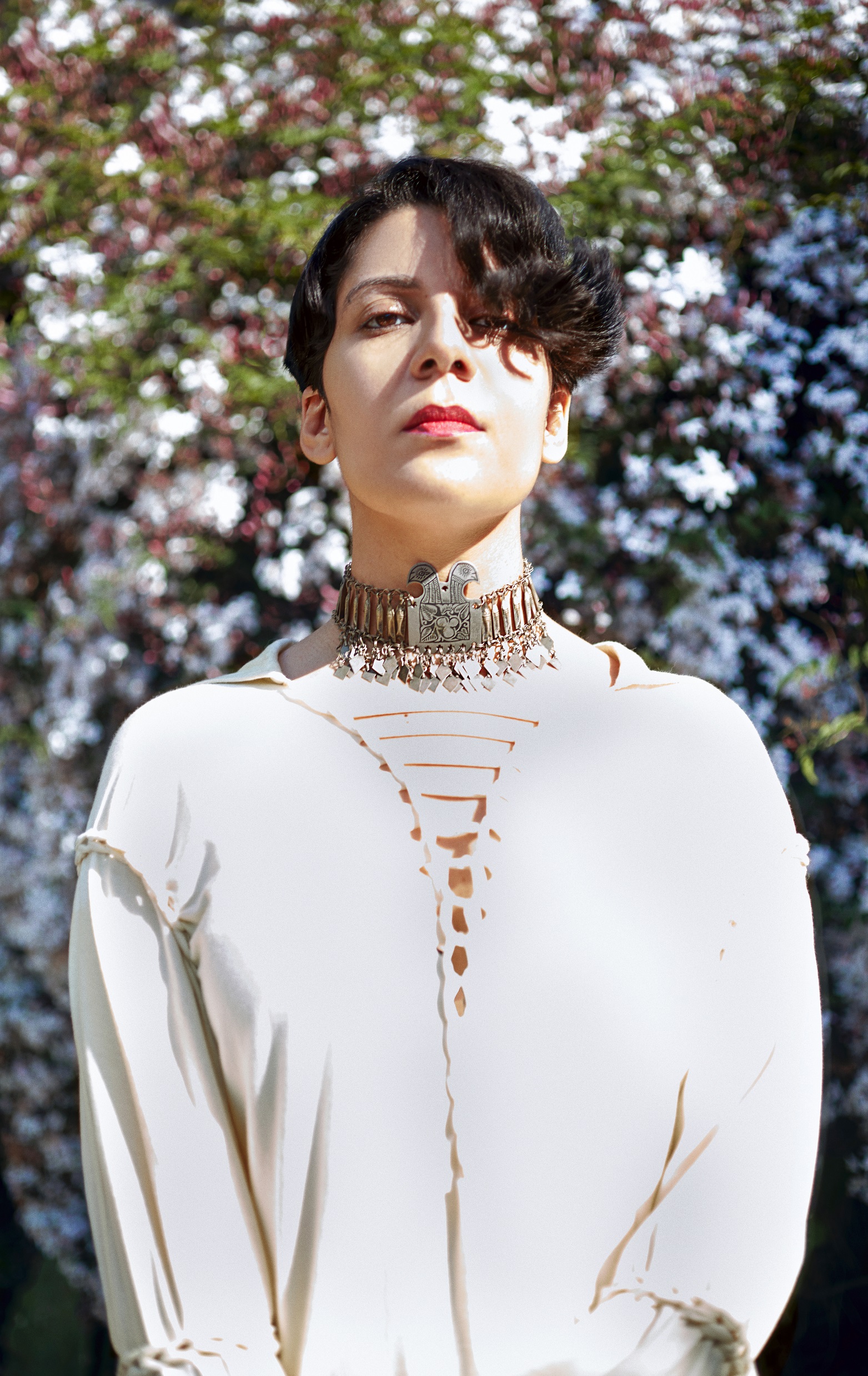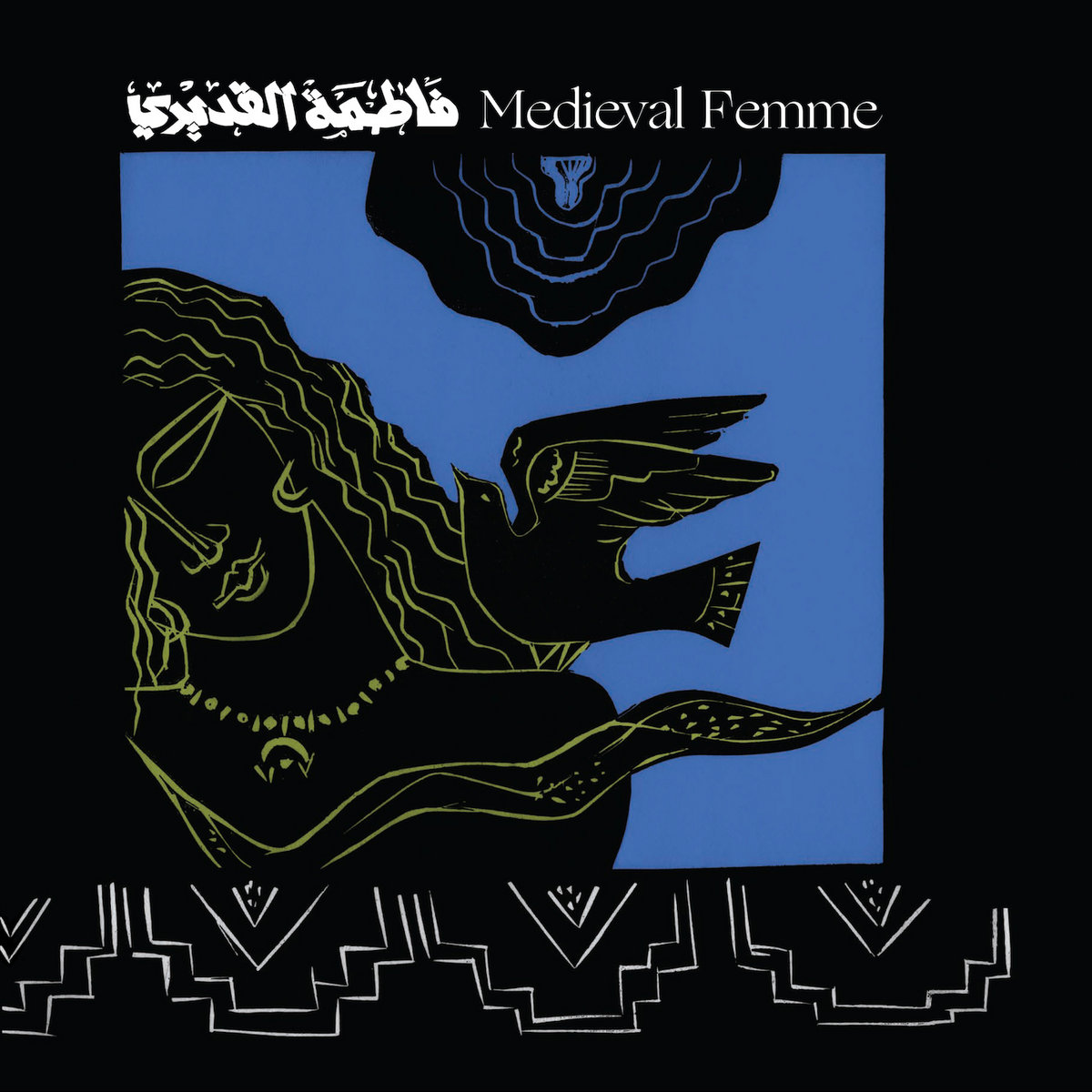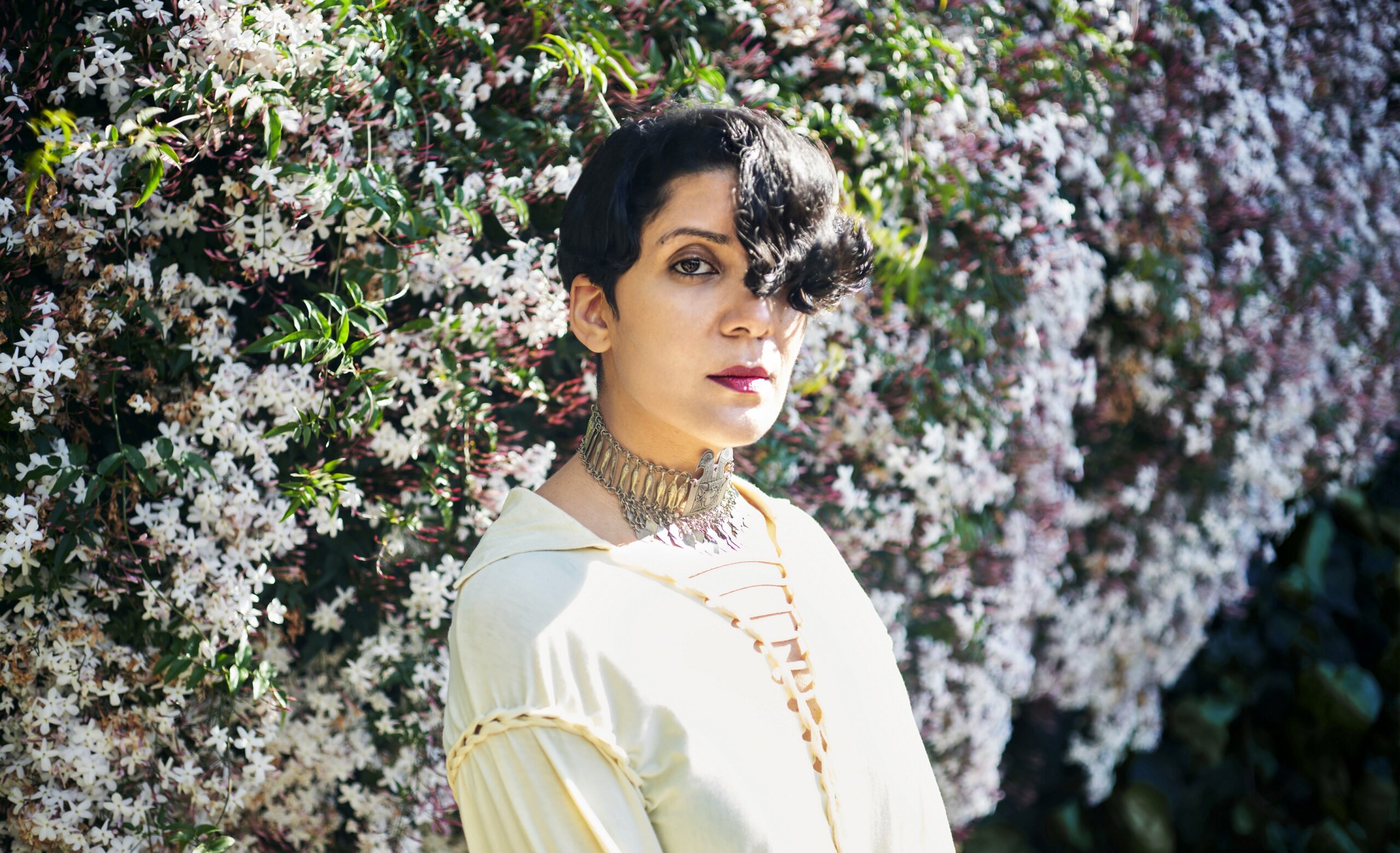Fatima Al Qadiri’s discography has guided fans across a range of different conceptual, aesthetic and auditory experiences. Since she began to release music in her early teens, she’s reinterpretated Islamic worship music, campy queer Arab dance music, electronic explorations of state power and police brutality and the scores of video game music. Al Qadiri’s ability to move listeners through depthful explorations of either politically relevant or unapologetically fun moods makes her an endlessly intriguing composer and musician—no two projects are ever the same.
Released on the heels of a year rife with isolation, panic, consciousness-raising and global activism, Al Qadiri’s 2021 album was sure to be an interesting one. She presented her new project to the world in the form of Medieval Femme, a record that takes inspiration from seventh-century Arab female poets to craft an atmosphere fitted to their reality. The result is an ethereal set of tracks ringing with longing, loneliness and desire, outfitted in gently articulated lyrics, hypnotically lulling rhythms and poetically plucked strings reminiscent of the Middle Ages.
The past year has seen many of us wrestle with and redefine our genders and identities as we sank into increased isolation. Medieval Femme embraces those elements of reflectiveness and somber meditation. While Al Qadiri’s 2017 EP, Shaneera, engaged with queerness and identity in a flamboyant, explicit, bubbling, over the top way, aesthetically aligning itself with camp and drag queens, Medieval Femme turns inwards to the creation of identity. The meditative atmosphere of the album toys with the notions of femininity, poeticism and loneliness, inviting the listener to reflect on their own ways of being in the world.
Al Qadiri sat down virtually with Xtra from her apartment in Los Angeles to discuss her new album, the idea of the medieval femme and transforming anxiety through musical composition.
Can you give us a brief overview of your background and how you got into creating music in the first place?
I wrote my first melody when I was nine. It was during the occupation of Kuwait [in 1990]. There was a little Casio keyboard in the house, and I wrote a very simple little melody and memorized it. That was my first kind of composition, let’s say. Then I just continued to do it, because it gave me so much pleasure. I memorized [my compositions] and would record them on cassette tapes until I learned how to use computer software, which was many years later.
Were there any specific albums or artists you were listening to when you were young that inspired you? Were your parents interested in music?
My father had a huge record collection. I think my biggest inspirations are personal, and my parents’ tastes and music. My mom listened to a lot of Iranian pop divas, like Googoosh, and my dad listened to a lot of Russian classical music from the 19th and early 20th centuries—composers like Tchaikovsky, Rimsky-Korsakov and Mussorgsky. They’re very Eastern sounding, in terms of classical music. Obviously, I was inspired by video game music. One of my biggest personal influences as a child was the soundtrack of [1988 cyberpunk anime film] Akira, because it was so different from anything I’d heard before.
You mentioned that when you first started making music you just kept doing it because you were enjoying it. When did you start considering it as a career?
I always had this dream of being a composer. I could hear music in my head, but I just didn’t have the resources or sophistication or knowledge of how to transfer it into the real world. Ever since I made that first melody, I was like, “This is what I need to be doing, I need to figure out a way to do it.” So it’s always been a dream of mine, to become a legitimate composer.

Credit: Lane Stewart
For your newly released album, Medieval Femme, who is the character of the medieval femme? And how does the album engage with her? Is it sort of a telling of her story, or is it an ode to her?
It’s not a character, it’s a mood. It’s more abstract. It’s an atmosphere. Well, that’s how I interpret it. But I also want to be loose with other people’s interpretations. I also don’t want to gender her—I think that when it becomes a persona, it becomes gendered. And I really think of “medieval femme” more as a mood that descends on the listener.
How do you separate the idea of something femme from gender?
The qualities of femmeness are easily accessible. I think the same thing for masc. There’s a lot of duality in humans that’s accessible to all of us, including this notion that femmeness is universal and accessible and not closed off.
What are the ways that this concept of the medieval engages with the concept of femmeness? What about that intersection was interesting to you?
For me, the medieval aspect is that it’s a bygone past. It’s like a middle era: it’s not the future or the present, nor is it the ancient past. It’s something in between, but it seems very far from our reality. It was the writings of several women poets from the time that I found very inspiring. There was a thread between all the writings of a kind of melancholic longing, which I interpreted as a desire for agency and wanting things that are completely out of their reach. To me, channelling that energy into their writing was kind of a transformative process to basically overcome depression, to mark down their wants and their needs and their dreams in history.
For the older poems the album engages with, are they media that you already had a relationship with, or things you researched when producing the album?
There’s only one poem quoted in the album, which is track nine, “Tasakuba.” The rest I wrote myself. It’s all written by me and it’s contemporary. The one poem was from Al-Khansa, who was a seventh-century Arab poet, and the most famous female Arab poet. I wanted to pay homage to the original idea; I was very moved by this couplet from her poetry, and wanted to keep the essence of the inspiration in the record. But the rest is all my lyrics.
What was the process of creating the album? How did the idea come to you?
It just came to me out of nowhere. It was just the title, Medieval Femme. I thought, “This combination of two words is pretty fab, I guess I’m going to turn it into a record one day.” A year later, I started making a couple of instrumentals. And then I had to stop working on it, because I started working on the soundtrack for (2019 queer romance film) Atlantics. After Atlantics was over, then I started working on the album again until it was finished in January of this year.

Credit: Hyperdub
The atmosphere of Medieval Femme seems a bit different than some of your earlier music, maybe more subdued and reflective in a way. Do you see this as a difference? And how do you explain it?
I definitely feel like there’s a relationship between this record and the soundtrack of Atlantics. And I’ve mentioned in a few interviews that Mati (Diop, director of Atlantics) really influenced me with the film, because she wanted me to go into a very vulnerable, fragile place musically. That was like her opening a door to this record, and I definitely feel like the two records have more in common with each other than with my previous records. But you can see some tracks here and there in all my previous albums that have this kind of reflective quality. I think that I wanted to relate this mood, and this is what this mood sounded like.
Being that the album’s inspired by the medieval era, would you still say that the atmosphere of the last year and the pandemic have influenced the music?
Definitely, I feel that the way these women in medieval times wrote their poetry, they must have felt very isolated. They wouldn’t have equality for hundreds of years, in some cases more than 1,000 years. I definitely feel like there’s a loneliness to writing and to creative work in general. I used this record to channel a lot of my anxiety, because I wrote most of it during lockdown between March and June of 2020. I was really freaking out, like so many people, and I transformed a lot of toxic energy into the record.
With your 2014 album Asiatech, you noted in an interview that you were sort of creating music around ideas of the East that were maybe a bit Orientalist. But here, the focus seems different. What shifted?
I think every record has its own focus and its own story. I don’t think there’s a linear chain between them. I would say they’re all loosely biographical in some way. It’s all my observations about reality and history—they’re all quite personal in that way. But I don’t think that there is a huge relationship between this record and Asiatech.
Can you tell us a bit about the album cover and how it came to be?
It’s a print of my mother’s from 1990. It’s called Message I, and it was made two weeks before the invasion of Kuwait. She had a bad omen; she’s kind of psychic, actually she’s very psychic. And she made this and another print. I’ve admired it for a very long time. There’s this really enigmatic look on the figure’s face. There’s this bird giving her bad news, but there’s almost like a look of ecstasy on her face. It’s very strange that there’s no iris in her eye. Is she in pain, is she in joy? I really enjoyed this expression on [the figure’s] face, and I wanted it to be the cover of the record. There was something out of time about the artwork; it doesn’t look modernist, and I felt like that it contained historical value.
This interview has been edited for length and clarity.


 Why you can trust Xtra
Why you can trust Xtra


